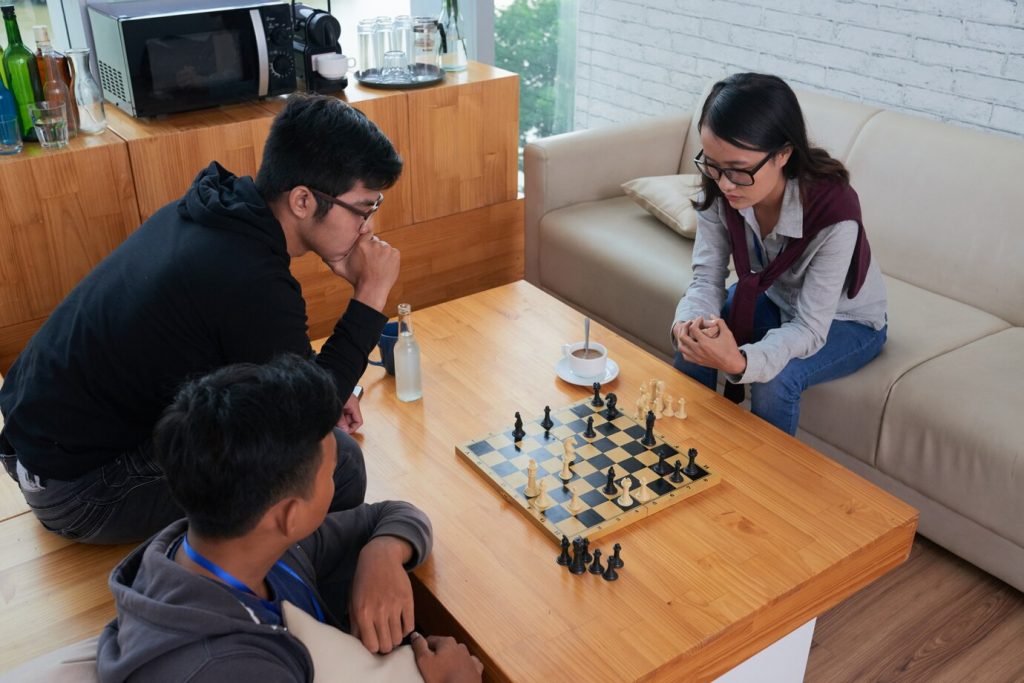How to deal with real chess setbacks

Getting good at real chess is a journey. Right from when you first learn how pieces move to developing an advanced understanding of endgame positions, you have to take baby steps till you reach milestones in your journey.
But is the journey consistent? Is there an ever better-ing trajectory? Undoubtedly, it isn’t. There are bound to be failures, and sad failures. At points, these may be so demotivating as to push the player to even consider giving up.
So, are you the only one who will face these? Or are you alone in such situations? Certainly, you aren’t!
So how do you handle them?!
Remember, you are on a journey
Remember that you are on a journey of a thousand miles. If you miss a milestone, you don’t lose the journey. Keep reminding this to yourself. If you are a chess parent, make sure your child gets into this mode of getting over defeats quickly. Ofcourse, in some scenarios, they may not be able to comprehend the rationale behind this – but, there is nothing better than if you can imbibe this trait in their psyche from a young age.
Always record your games and review them
Whether you are a digital or pen-paper player, always make sure you preserve your games and religiously review and annotate them after each game. Or atleast, at the end of the tournament days while the games are still fresh, while what you were thinking during the games is still fresh in your mind.
Ofcourse, now with so much tech, you may want to use Lichess studies or even a Chessbase to record and annotate your games.
Discover recurring patterns of your weakness
The reason for reviewing your games and annotating is to identify patterns of weaknesses that keep recurring in your games. If you spend enough time reviewing your games, you will realise there are perhaps specific openings you are doing bad at. Or there are specific tactical motifs you don’t do well at. Or maybe you need to get better at certain types of end games. Or it could be as simple as avoiding one move blunders!
If you know what you are doing wrong, you can figure out what is needed to address the weakness.
Openings: Getting better at them
In many games player between amateurs, players often try to capitalize on sharp openings and trap lines. Watch out for lines that you are repeatedly falling prey to.
Look up an engine and spend time to address those gaps.
Do remember, trap lines are often lines that are very hard to figure out by yourself during the game. You need to know them upfront.
Also, if someone does defeat you playing a sharp line, it does not necessarily mean they are better players.
Look for Non-chess factors that are affecting your performance
In too many situations, the reasons for your game getting negatively effected could have nothing to do with your real chess skills.
Let us spell out several situations that you will certainly relate too.
1. If you overplay online games
Especially if you end up playing too many blitz and bullet games, nearly suffering from temporary addiction. In such cases, your brain stops thinking and simply blitzes moves out without thinking. These invariably result in a very disturbing loosing streak that is very frustrating for the player.
The best way to avoid this is to completely time bound your online games. Even more preferable is to stop playing blitz and bullet games altogether till you have reached a target rating you have set for yourself, say 2200 or something like that.
Remember that blitz, and bullet games are often a function of strong intuitive understanding of real chess where players play well without having to compute. There is a journey that you need to undertake before you reach that level. Once you have reached the point, play as much as you want!
2. Justifying losses to yourself
Real chess is a game where you cannot blame other factors. If you make a bad move, you make it. So, it becomes psychologically challenging to accept your fault without acknowledging your fallibility before your opponent.
So, after a game finishes, you will find the player getting defeated justifying their play saying they were a couple of pawns up and simply ended up blundering something – almost as if trying to assert to themselves and others around them – they were the better players.
Get out of this habit. Take defeats and victories objectively, and concede your opponents strengths to them, and accept your weaknesses to yourself.
Do not lie to yourself. Period.
3. Environmental factors
Real chess is a game that requires consistent focus and concentration. Sometimes even minor disturbances can cause your thought process to falter. For example, if you are playing online someone walking up to you and distracting you during a game can tilt the result. Equally squeaking chairs, your opponent’s idiosyncrasies, too crowded seating arrangements in tournament venues can distract you from the game.
Whenever you are playing – remember, all of these are a necessarily a part of them game. You must become a champion with all of these challenges. They are not excuses to be defeated, they are challenges to be surmounted.
See if there were such factors that were affecting your results. If there were, take them into account in your next games.
Summarily, while poor results are always very disheartening but, do take them as experiences to learn from. Remember you are not the only one getting facing rough patches.
It is not that champions get a smooth path, free of these factors. They just address these challenges with a different mindset.
Good luck!
Other videos on the topic:
Dealing with Chess Setbacks: Overcoming Challenges
Remember You’re on a Journey: Chess improvement is a journey with ups and downs.
Record and Review Games: Keep a record of your games and review them.
Discover Weakness Patterns: Analyze your games to find common weaknesses.
Master Openings: Study and address gaps to avoid falling into traps.
Non-Chess Factors Matter: Avoid excessive online blitz and bullet games.
Justify Losses Objectively: Accept defeats without justifications.
Environmental Factors: Learn to overcome distractions and challenges during games.
Explore the expert guidance offered by Caissa School of Chess to help you master the game.





